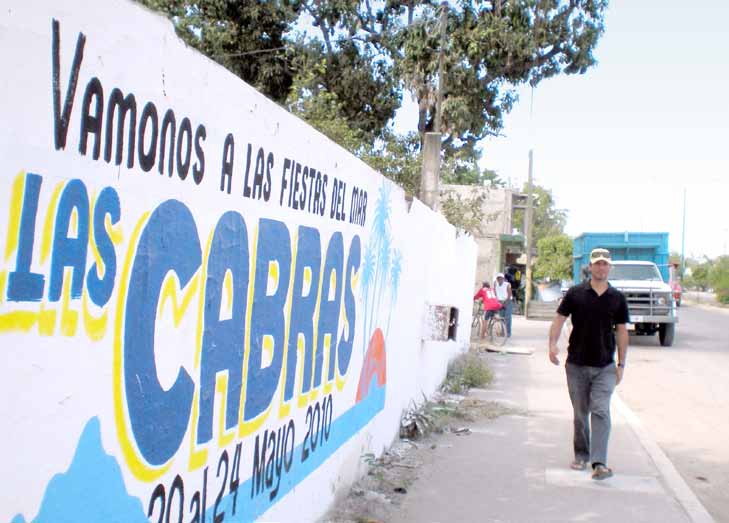By Talli Nauman*
With the usual feverish activity seen every year, the lively Festival of the Sea (or better yet, the Fertility Festival) was celebrated from May 20th to 24th, 2010 at Las Cabras beach.
Central to the identity of the town of Escuinapa, Sinaloa, the event attracts between 20,000 and 40,000 people to the mouth of the Gulf of California, leaving the capital and the county practically empty and looking like a ghost town—everyone's gone camping on the dunes in an area about a mile long..
As is the custom, everyone prepares well before hand. Some save all year just be able to pay for the band. Weeks in advance, the people from nearby towns begin to prepare their land and stuff for their time at the festival.
They clean their 12 x 12 ft rooms so that the mattresses can be rented out at about US$95; they build ramadas with palm and mangrove; they make tamales; they bury their cartons of beer in the sand. And they get a tractor to haul the trailer with the tent and everything else.
The beach almost turns into a fairgrounds during this time with entire neighborhoods springing up, like La Mecha for example, where there are stripper shows. Don't miss the beauty pageant and coronation of the Queen of the Las Cabras Festival of the Sea.
Grocers and tortilla makers stake out their locales, with some even having their water barrels mounted above the stalls. The municipality has seen itself forced to supply water. DIF provides Porta-Potties and the Red Cross is in charge of emergency services.
The celebration has already become a destination for Mexican tourists since it all happens just a few miles from the airport and the popular resort of Mazatlan. They even now sell Las Cabras commemorative beer!
At the ocean’s edge, the priest comes to say Mass. Meanwhile, reproductive healthcare workers hand out free condoms. In the ebb and flow of the human masses, much like the tide itself, the result
has been that there are many (some say too many) births in the town every February. “What can you do”, says Jorge Alberto Macías, city chronicler, “the origins of the festival are based on fertility.”
What was never expected was the possibility that something could put an end to the enjoyment of these rites of Spring. However, just this past year the federal and state governments approved the closing of the public beaches at Las Cabras in order to impose a new private megatourism project called the Pacific Coast Integrally Planned Center (CIP) on the area.
President Felipe Calderón described it as a good bet for bringing jobs to the area. But the Geography Institute of the Autonomous University of Mexico organized a meeting in September 2010 to gauge the impressions of the residents of Escuinapa about the project. What worries the majority of the attendees was not jobs, but the loss of their culture and traditions with emphasis, above all, on the Las Cabras Festival of the Sea.
"Many people value the festival and are afraid that it will end," said Carlos Simental, founding member of the non-profit Redes (Ecology Network for the Development of Escuinapa).
*Co-Director of Journalism to Raise Environmental Awareness
 The traditional Festival of the Sea at Las Cabra beach is one of the most important and anticipated events of the year for the people of southern Sinaloa.
The traditional Festival of the Sea at Las Cabra beach is one of the most important and anticipated events of the year for the people of southern Sinaloa. The traditional Festival of the Sea at Las Cabra beach is one of the most important and anticipated events of the year for the people of southern Sinaloa.
The traditional Festival of the Sea at Las Cabra beach is one of the most important and anticipated events of the year for the people of southern Sinaloa.